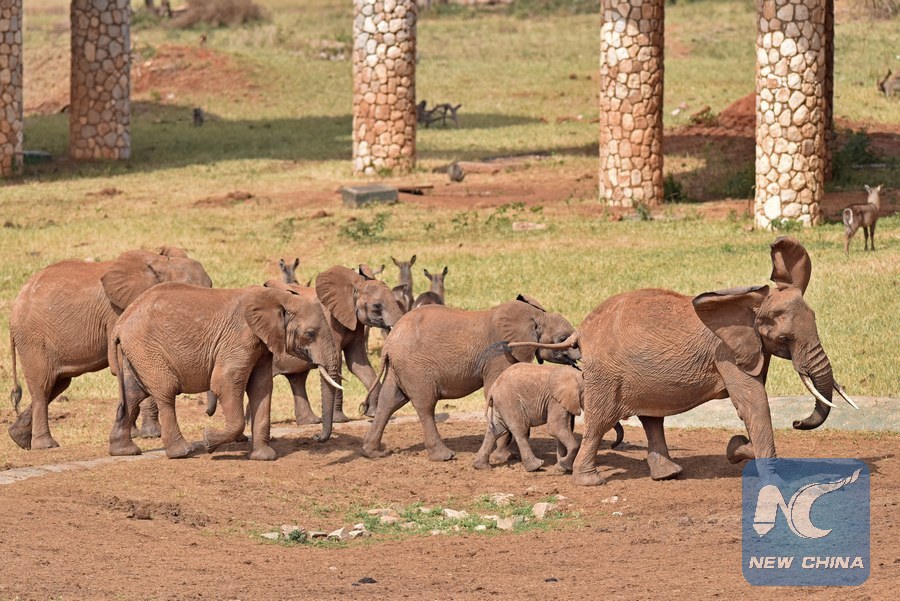
Photo taken on Feb. 22, 2017 shows elephants at the Tsavo West National Park, near Voi, Kenya. (Xinhua/Sun Ruibo)
ARUSHA, Tanzania, Oct. 26 (Xinhua) -- The Convention on International Trade in Endangered Species of Wild Fauna and Flora (CITES) has said that overall elephant poaching in Africa gradually declines for the fifth year in a row, and drops in eastern Africa to pre-2008 levels.
The announcement Tuesday is based on new reports of the CITES MIKE (Monitoring the Illegal Killing of Elephants) Programme and the Elephant Trade Information System (ETIS), and updates on the conservation status of elephants provided by the International Union for Conservation of Nature (IUCN).
According to CITES, Tanzania has registered a 55-percent decrease in the number of elephant carcass compared to 2015 due to reduced poaching and illegal killing, remaining the sub-region's stronghold for elephant populations.
However, the news is not so positive for Central Africa where dramatic losses of elephant populations have been reported over the last 10 years, and levels of illegal killing remain very high.
The announcement also said that Africa's elephant populations continue to fall due to continued illegal killing, land transformation and rapid human expansion. African elephants declined by 111,000 over the past 10 years.
According to the report, overall trends in the poaching of African elephants show that the sharp increase in the levels of illegal killing of elephants witnessed since 2006, and peaking in 2011, was first halted, then stabilized, and is now in decline, but at levels that remain too high when viewed continent-wide, with overall elephant population likely to have declined in 2016.
Robert Fyumagwa, Principal Research Officer at the Arusha-based Tanzania Wildlife Research Institute (TAWIRI) attributed the decline of poaching and other related activities to sound enforcement in national parks and game reserves.
Fyumagwa noted that law enforcement has taken it up a notch compared to previous years where complacency was the order of the day. "Recently, our law enforcments units and rangers have become more vigilant in protecting the endangered species," he observed.

